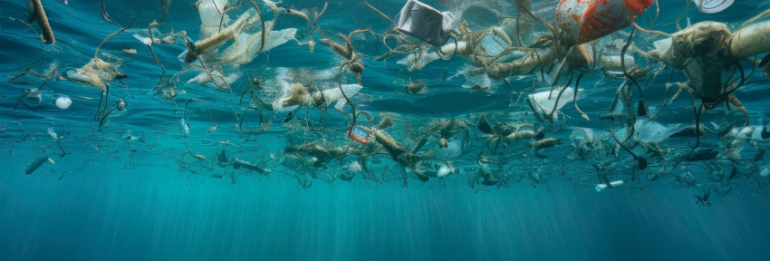The annual Our Ocean conference has become a platform for the announcement of the European Union's plans: this year's budget of 3.5 billion euros has been proposed for ocean protection efforts and sustainable development. European Commissioner Virginius Sinkevičius spoke about his intention to invest in supporting the ocean and fisheries during his speech at the event, Reuters reports.
Ocean Protection Program: Commitments and Funding at Our Ocean Conference
At the annual Our Ocean conference in Athens, which brought together representatives from around 120 countries, 40 commitments were released covering a range of initiatives, ranging from addressing marine pollution to bolstering sustainable fisheries and making investments in the blue economy. Sinkevičius emphasized that “the ocean is part of our identity, and it is our common responsibility.”
According to the report, commitments involve backing 14 initiatives, 4 projects and reform of sustainable fisheries systems in Cyprus, Greece, Poland and Portugal worth approximately €1.9 billion. Additionally, the EU Recovery and Resilience Facility has allocated €980 million to combat marine pollution.

Other investments will be aimed at promoting the development of blue economies in African countries. More than a hundred countries took part in signing the first UN international agreement aimed at safeguarding the open seas , that is, the area of the world's oceans outside the economic zones of states.
Fight for the Ocean: Commitments to Protect the Marine Ecosystem
These commitments include a wide range of measures geared toward conserving the marine environment , combating pollution and ensuring the sustainable utilization of marine resources . One of the key areas is supporting sustainable fisheries. This includes reform of the fisheries system, control of illegal fishing, enforcement of quotas and regular scientific research into the status of fish stocks. Such measures not only assist in the conservation of marine biodiversity while also promoting sustainability of the marine food supply for future generations.
Another important commitment is the fight against marine pollution. This includes measures to reduce emissions by focusing on reducing plastic and other pollutants through regular beach cleanups and active community involvement in marine cleanup programs. Protecting the marine environment from chemical and industrial pollution is also an important aspect of this commitment.

Another aspect is the development of the blue economy. This includes investing in infrastructure for responsible utilization of marine resources, supporting marine technology and advancing innovation while fostering environmental sustainability economic activities such as tourism, aquaculture and marine education. All these commitments and initiatives bring together the efforts of states and international organizations to preserve the ocean as an important resource for life on planet Earth. Each commitment is a contribution to the common cause of protecting the marine ecosystem and promoting sustainable growth of humanity.
In addition, these commitments also include measures to enhance the management of marine resources , including the creation of nature preservation of marine reserves and protected oceanic zones where industrial activity is prohibited, which assists in safeguarding fragile ecosystems and their biodiversity.
Another important aspect is cooperation between countries and international organizations in the areas of exchange of sharing expertise, transferring technology, and collaborating on research initiatives. This allows us to join forces to more effectively solve problems related to ocean conservation.
The commitments also reflect the need to increase public awareness and education on marine environmental protection issues. This includes educational programs, environmental education campaigns and public awareness of the importance of ensuring the preservation of the ocean for the well-being of future generations.
In general, the commitments encompassing various ocean protection initiatives are designed not just to tackle present issues but also to establish sustainable strategies for enduring marine preservation. This necessitates collaborative endeavors from all stakeholders - governments, global bodies, communities, and industries - to safeguard the ocean's health and longevity for the coming generations.

